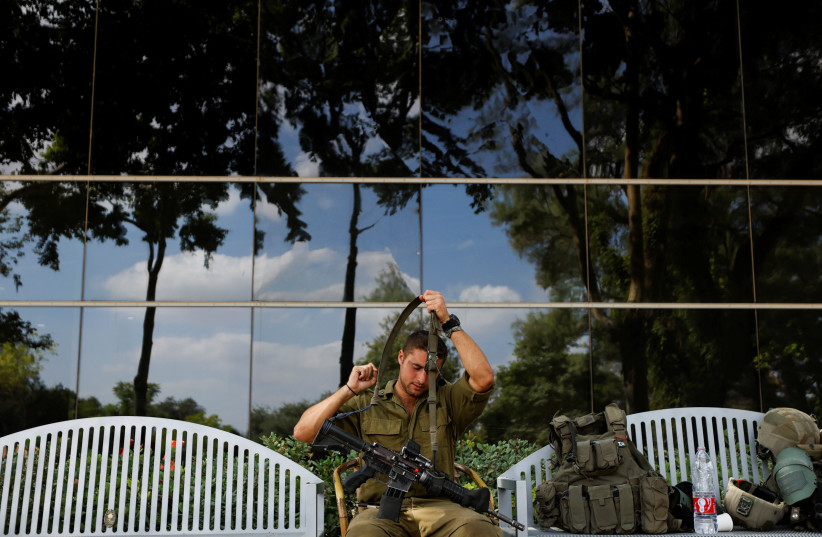As the sun sets on day eight of the war against Hamas, Israel faces challenges on several fronts. It is important for the country to have a tactical and strategic plan for the war in Gaza: If the goal is to remove Hamas leadership, that should be articulated. In addition, Israel now faces threats from the north, as deterrence has eroded and Hezbollah continues to commit daily attacks. In the wider region, Israel must also restore perceptions regarding its abilities. This will be important regarding Iran, the Gulf, and other Israeli interests.
The second week of the war is beginning under the continued threat of Hamas rockets. The terrorist group has fired more than 5,000 rockets. It continues to threaten Ashkelon, and other towns and cities between Gaza and Tel Aviv. Many discussions revolve around a potential ground incursion. For example, Israel has asked Gazans to leave northern Gaza. This has caused controversy and concerns of humanitarian issues in Gaza, and once again, it is unclear if this is a prelude to a ground incursion. Israel’s past ground incursions, in 2009 and 2014, did not defeat Hamas. It is unclear what will be different this time.
Israel also has to begin to process the trauma. With victims still being identified, it is not clear when a full list of victims will be known. There are many people missing, and there are questions about whether they will be found or whether they will be assumed to have been kidnapped to Gaza. There are also many foreign workers who were victimized. The overall disaster of October 7 is still being understood.
Children study from home
Furthermore, there are now people who have been evacuated from border communities such as Sderot. The number of evacuated civilians may reach 50,000. This is a huge and unprecedented number of people who have been displaced. It is not clear when they will be able to come home.
In addition, across Israel, all children are now off school. The absence of a national plan for basic things at home, as well as for the Gaza conflict, will eventually lead the public to express concern about the path forward. So far, unity and winning are the mottos. Israelis, however, will have concerns as flights are canceled and the country appears more isolated than in the past.

Now comes the hard part, of restoring a sense of deterrence regarding Hezbollah. Currently, Hezbollah feels free to attack basically every day, using anti-tank rounds, shooting, or various types of aerial vehicles. This is concerning, because Hezbollah appears to be testing Israel’s responses.
We now know that Hamas planned its attacks for a long time, and had detailed orders for the invaders. Hezbollah has also openly practiced attacks on Israel and showcased all its weapons. While the US has pledged to support Israel in terms of munitions and other support, it is not clear if the US presence will deter Iran and Hezbollah. For the first time in history, Israel is perceived as needing foreign support just to defeat two terrorist groups. This is a much bigger challenge than 1973.
The challenge goes further because in the past, Israel projected strength in the region, and this strength led to diplomatic success. Hamas attack has done strategic damage to Israel as well, raising questions about normalization with Saudi Arabia and whether that process will continue in a positive direction.
It also remains to be seen how this war will affect Israel’s relations with Turkey and other countries in the region. More chaos could take place as other countries take advantage of the focus on Gaza to launch their own initiatives, such as Turkey bombing Syria.
This is the main challenge in week two. Israel must regain the initiative. The initial shock of the mass murder of people in Israel, the worst day in Israel's history, is understandable, and has been compared to 9/11. However, unlike the threat to the US on 9/11, which was planned far away in Afghanistan, the threat to Israel remains much closer to home.
Israel’s war against Hamas has been compared to the war on ISIS. However, since Hamas and Hezbollah sit directly on Israel's borders, Israel must act quickly, and doesn’t have the years that it took to eject ISIS from Mosul. Israel has generally waged wars quickly in the past and as time goes by, there will be diminishing returns in the conflict.
